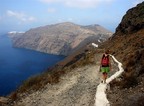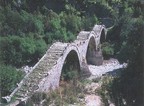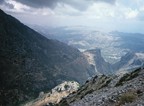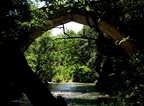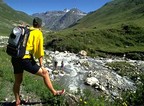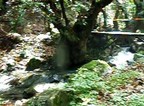Just like a car needs fuel to drive, so does the human body need food and drink to build up the energy needed to walk. The provisions you take with you will largely depend on your own preferences, the duration of the hike, and if you will be able to replenish your supplies along the way. In general, good planning and precautions can prevent serious nutrition problems. In this section, we will look at all aspects of good Hiking nutrition.
Selecting your Foods
Hiking Provisions – Outdoor Nutrition Selecting what food to take with you will depend on your plans. On short hikes, you can pamper yourself by taking all kinds of snacks. The additional weight and volume might not be any serious factor, so why not. However, if you are going on multi-day hikes with no sure places to replenish your provisions, careful choices will have to be made to make sure you can pack the necessary provisions. Thus, choosing your food becomes a challenging puzzle where nutritional value, volume, weight, and preparation method have to be taken into account.
Here are some tips when it comes to selecting your foods:
- Dried or dehydrated foods: retain most of their nutritional value but since most of the water content has been removed, the foods are lighter in weight and smaller in volume. This makes dehydrated foods very popular in the Hiking community. Preparation is mostly very simple but will require water.
- Canned Foods: are even easier to prepare but are both heavier and take up more space. Canned foods can be added to your selection if you want to build in some luxury treats.
Select a variation of foods that fulfill different nutritional needs. Variation in your food intake is very important especially on longer trips.Hiking community. Preparation is mostly very simple but will require water.
Plan your Meals
You need to plan your food and fluid intake to make sure that you have enough to last for the duration of your hike. Planning your meals will make sure that you do not over indulge on day one, leaving you with nothing to eat on the third day. Here are some guidelines in planning your meals:
- Do not depend on other possible sources of food and bring everything you need to keep yourself well-fed during your hikes. Only if you are 100% sure that you will be able to restock should you take less with you.
- If you are sure about re-supply points in your Hiking plans then anticipate on what provisions they can replenish.
- Separate your meals in daily rations and package them separately. This will make it easier to determine how much you are allowed to eat to have enough for the full duration of your hike.
- Package and label emergency rations. Labeling them as emergency rations will make you think twice before you use them as a snack!
Plan your Water Needs
- The absolute minimum is at least two liters per day. Take at least two liters with you even if you expect to find places where you can refill your water reserves.
- Take about one liter for every two hours of hiking with the abovementioned two-liter minimum.
- Under normal Hiking conditions, three to four liters per day should suffice.
- Higher temperatures will increase the needed fluid intake.
- Increased exercise will increase the needed fluid intake.
- If you plan to spend nights outdoors while hiking, calculate extra water reserves for washing yourself and possibly rinsing cooking utensils.
For more info on hiking in Greece, click here
